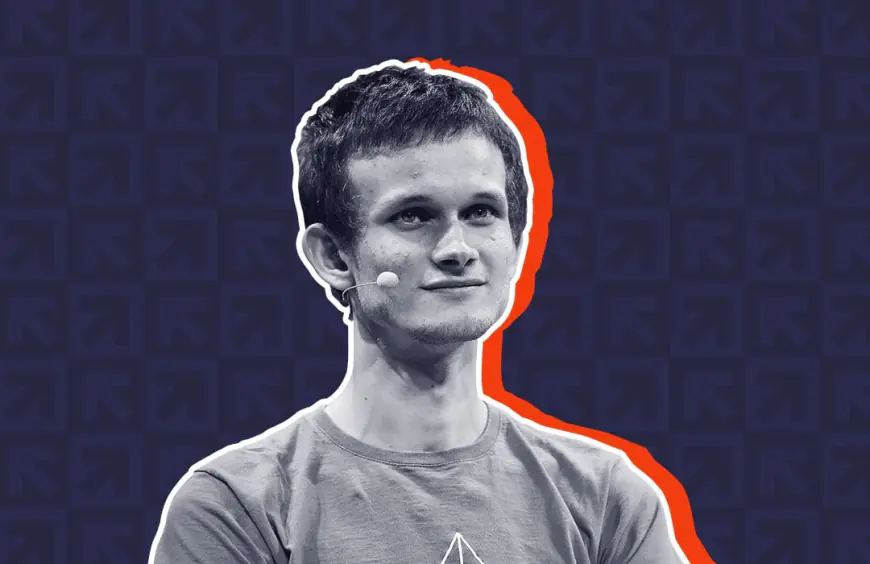Vitalik Proposes Game-Changing Upgrades to Ethereum’s PoS: Single-Slot Finality and Staking
Vitalik Buterin has introduced significant proposals aimed at improving Ethereum’s proof-of-stake (PoS) system moving ahead. He focuses on two key upgrades: single-slot finality, which could reduce block finalization time from approximately 15 minutes to about 12 seconds, and lowering the staking requirement from 32 ETH to just 1 ETH. Ethereum co-founder Vitalik Buterin has outlined [...]


- Vitalik Buterin has introduced significant proposals aimed at improving Ethereum’s proof-of-stake (PoS) system moving ahead.
- He focuses on two key upgrades: single-slot finality, which could reduce block finalization time from approximately 15 minutes to about 12 seconds, and lowering the staking requirement from 32 ETH to just 1 ETH.
Ethereum co-founder Vitalik Buterin has outlined major proposals to enhance Ether’s proof-of-stake (PoS) system. Two upgrades at the core of this plan are single-slot finality and the democratization of staking. If these innovations are implemented, it could alter Ethereum’s operational features by improving its efficiency and accessibility.
In a recent post, Buterin acknowledged Ethereum’s progress since transitioning from proof-of-work to proof-of-stake nearly two years ago. He noted that while the network’s PoS mechanism has been “remarkably stable” and successful in avoiding centralization, there remain key areas for improvement. Specifically, he pointed out the finalization time for blocks and the high threshold of 32 ETH required for staking.
Following his recent efforts around the ecosystem, economists have also been advocating for the Nobel Prize in Economics for Vitalik Buterin, reported CNF.
Ethereum Single-Slot Finality Proposal
One of the proposed upgrades is the introduction of single-slot finality. Currently, Ethereum’s PoS mechanism requires 2-3 epochs, or about 15 minutes, to finalize a block. This delay poses challenges for users seeking faster transaction confirmations.
Buterin explained, “Most users do not [wait 15 minutes],” which means they miss out on the higher security assurances provided by Ethereum’s finality mechanism. He added that with single-slot finality, transactions could be finalized in approximately 12 seconds. This would make Ethereum’s performance at par with that of more centralized chains.
This change would not only enhance user experience but also simplify the surrounding infrastructure. The Ether founder also spotlighted that the single-slot finality would reduce the possibility of chain reversion where previously confirmed blocks are undone. It will make Ethereum more secure in real-time applications, reported CNF.
However, the change will not be without its technical challenges. The biggest hurdle lies in managing the high validator count without placing undue overhead on node operators. Buterin’s team is exploring several solutions, including a brute-force approach using zero-knowledge proofs (ZK-SNARKs) to collect signatures from millions of validators quickly.
Vitalik Buterin Input On Democratizing Staking
Another transformative proposal is reducing the staking requirement from 32 ETH to just 1 ETH. This move will open up staking to a wider range of participants, particularly solo stakers who don’t have massive Ether holdings.
“Poll after poll repeatedly shows that the main factor preventing more people from solo staking is the 32 ETH minimum,” Buterin wrote. Lowering this threshold would democratize staking and allow participation without relying on staking pools or centralized intermediaries.
Nevertheless, Buterin acknowledged that this goal conflicts with the objective of minimizing node overhead. This limitation has prevented Ethereum from adopting single-slot finality so far.
Thus, one potential solution under consideration is the Orbit Committee mechanism. This mechanism randomly selects a medium-sized committee of validators to finalize the chain while preserving the high cost of attack needed for economic finality.
How Will Ether Network Balance Trade-offs?
While both single-slot finality and reduced staking thresholds hold promise, they present complex trade-offs. Buterin laid out several paths for the Ethereum network to tackle trade-offs. These include maintaining the status quo and implementing brute-force finality mechanisms.
Also, he’s looking forward to introducing a two-tier staking system where only higher-deposit validators are directly involved in providing finality. However, each of these proposed upgrades comes with its own set of risks and rewards.
What's Your Reaction?









































































































